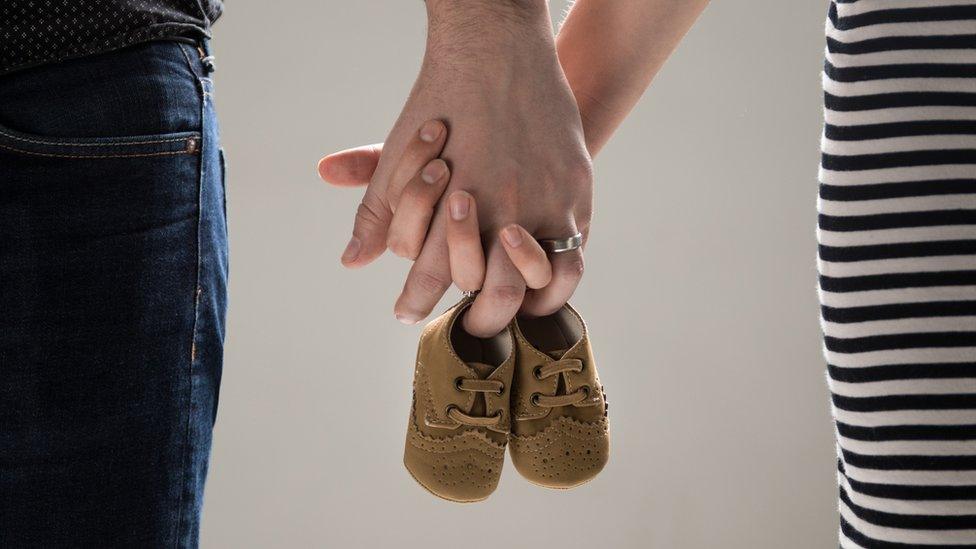Why I chose to go it alone with IVF
- Published
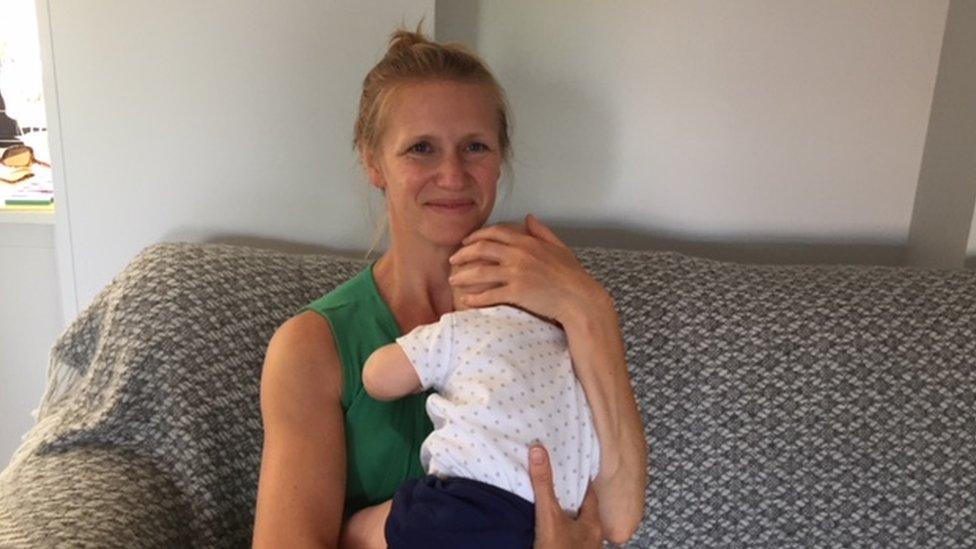
Polly Kerr took the decision to have IVF as a single woman
Polly Kerr is one of a growing number of single women to have opted for IVF.
The 39-year-old from Oxford used an anonymous sperm donor to conceive last year and gave birth earlier this year.
The treatment, which involves an egg being fertilised in a laboratory, is more often used for couples struggling to have children.
Polly said: "It became clear if I wanted to have a baby, I needed to get a move on.
"I was 36 or 37 when I first started thinking about it seriously and became very aware that I hadn't been in a relationship for some time, so if I didn't go down the IVF route it may never happen."
She said she had been "surprised and pleased" to see how accepting her family were of her decision to have IVF.
According to the government's advisory body, the Human Fertilisation and Embryology Authority (HFEA), the number of single women choosing to have IVF is up 35% since 2014.
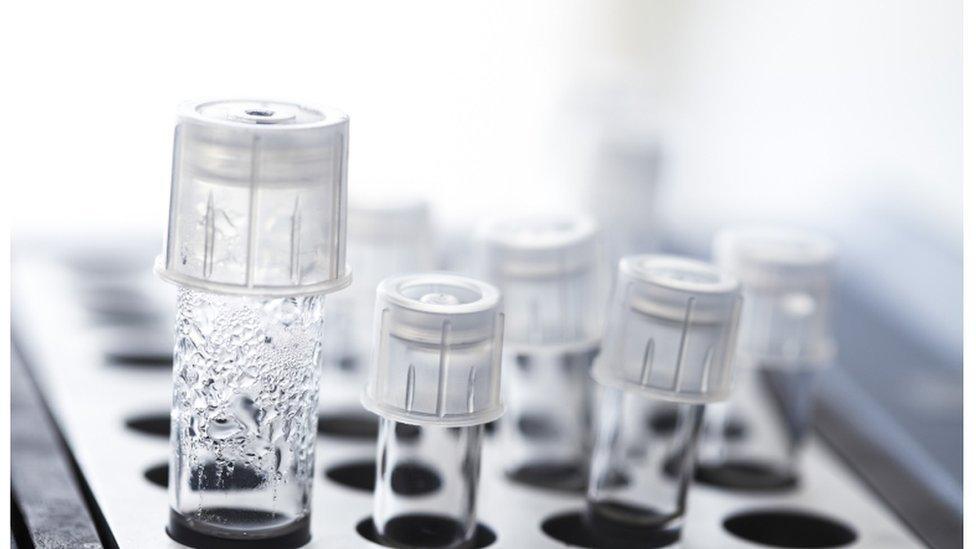
IVF involves an egg being fertilised with sperm in a laboratory
The number of treatments for patients without a partner has increased nationally - to more than 1,000, 2% of all treatments.
Tim Child, medical director of the clinic Oxford Fertility, which plans to treat more than 20 single women this year, said: "It may be increased awareness... and perhaps because people are more unwilling to accept having a child with someone they don't want to have a child with.
"Unfortunately, IVF is expensive. Certainly, an IVF cycle including donor sperm could be somewhere between £5,000 and maybe even up to £7,000.
"The success rate at Oxford Fertility may be between 30% and 50% depending on a woman's age."
IVF can be free on the NHS if certain criteria are met - but people such as Polly are prepared to pay for it.
She said: "IVF was not something I had specifically saved for but I did have savings... as time went on, it was the best possible thing I could spend that money I had saved on."
The National Institute for Clinical Excellence (NICE) sets guidelines for provision of IVF.
A representative said: "Our guidance does not discriminate against single people. However, our guidance is for couples who have fertility problems.
"Local clinical commissioning groups [CCGs] set their own criteria for who is eligible for IVF and they may be stricter than those recommended by NICE.
"Fertility is a core NHS service. Our recommendation is to offer three full cycles of IVF to women under 40 and one full cycle for some women aged 40-42."
It's thought a shortage of sperm donors could be to do with rules that mean children can find out who their biological father is at 18.
Polly feels "torn" over the prospect of her son wanting to find this out.
"I will never hide the circumstances of his birth from him," she said.
"When he turns 18, he can find out [who his father is] and if he does decide to find out it will be quite a poignant moment for me.
"But equally if there's the chance he has got half-brothers or half-sisters - I know how much I've loved having a sister - and I think that will be lovely for him to find out about."
- Published5 August 2018
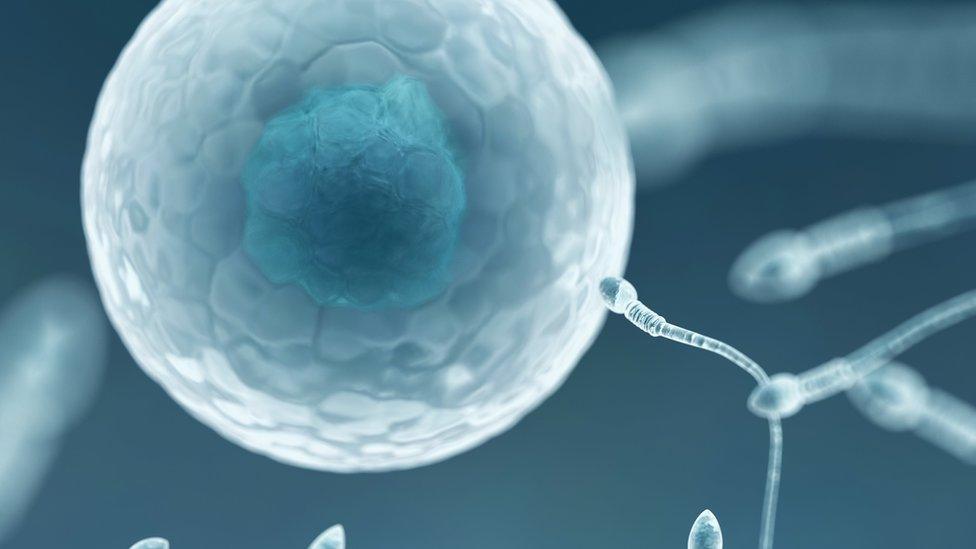
- Published20 July 2018
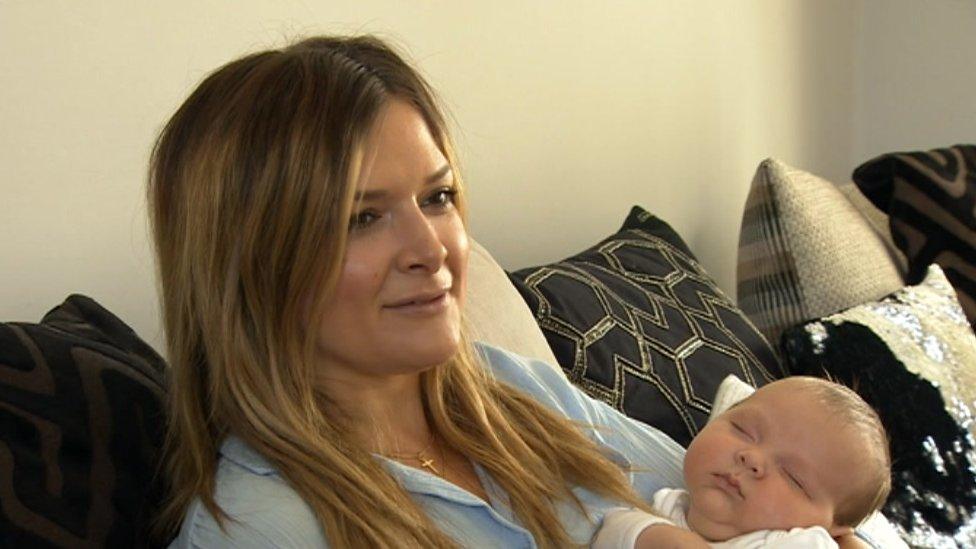
- Published8 August 2018
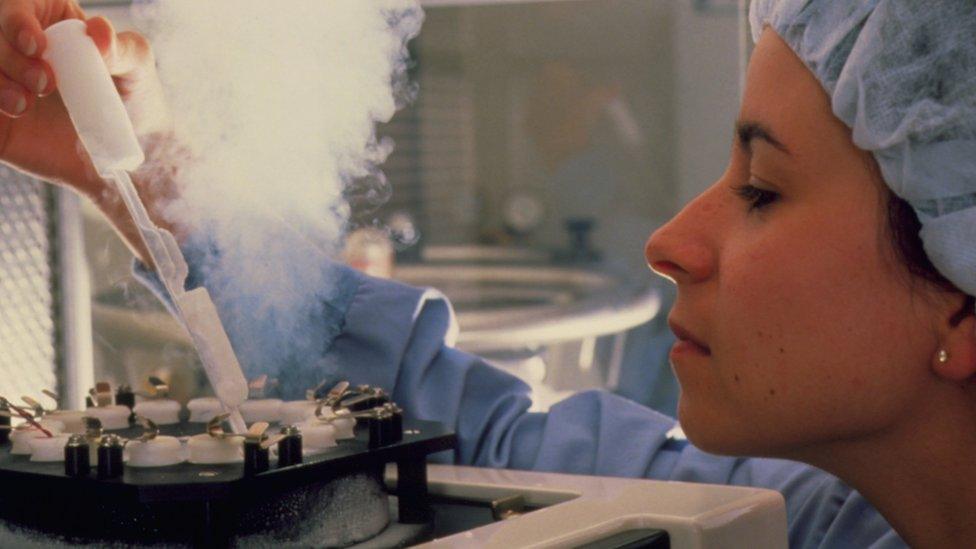
- Published6 July 2017
